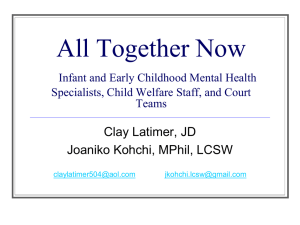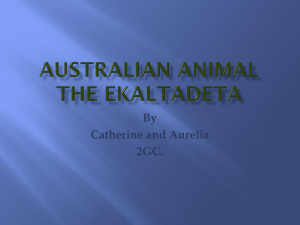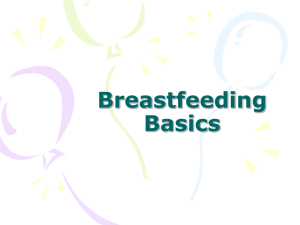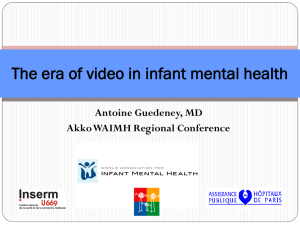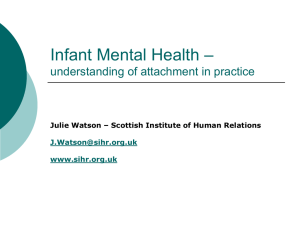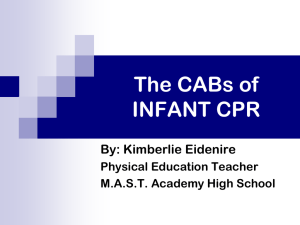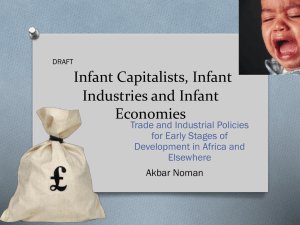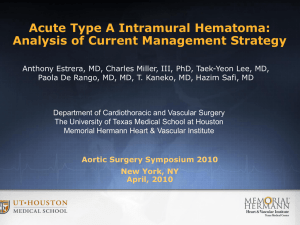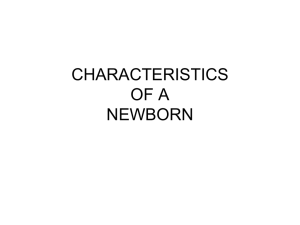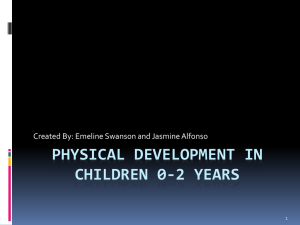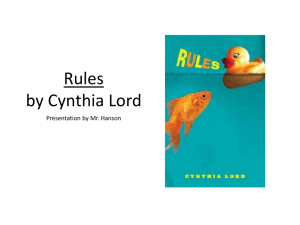Catherine Maguire on Infant Mental Health Practice
advertisement
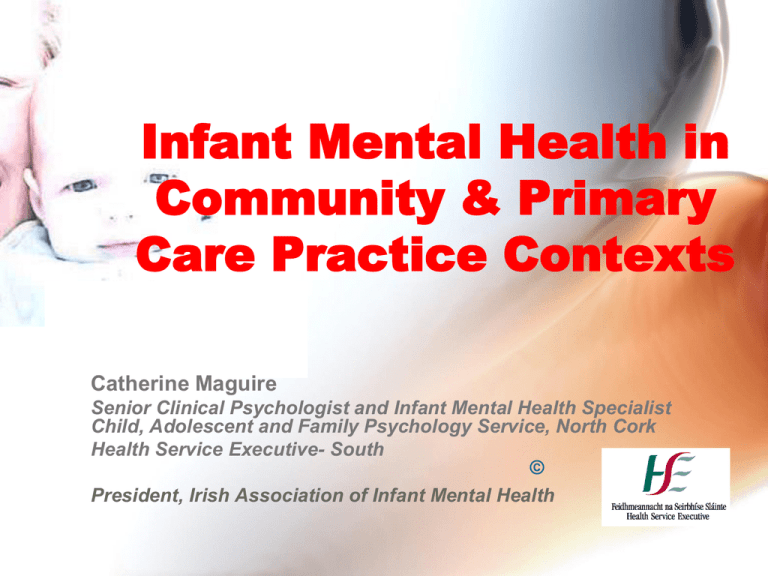
Infant Mental Health in Community & Primary Care Practice Contexts Catherine Maguire Senior Clinical Psychologist and Infant Mental Health Specialist Child, Adolescent and Family Psychology Service, North Cork Health Service Executive- South © President, Irish Association of Infant Mental Health Why Infant Mental Health? • • Everybody knows a baby… What about the baby’s social and emotional development? Can you remember? Why is Infant Mental Health important? 1. Why early experiences and early relationships matter 2. Creating a fluency about early social and emotional development 3. Two case examples from practice What is Infant Mental Health? •To experience, regulate & express emotions •Form close & secure relationships •Explore the environment & learn “All of these capacities will be best accomplished within the contexts of caregiving environments that include family, community, and cultural expectations for young children” (Zero to Three, 2001) Copyright Catherine Maguire & Rochelle Matacz © Why is Infant Mental Health so important? What difference does it make? ● A window of opportunity exists in infancy and early toddlerhood ● The early years are a sensitive and critical period of development ● Extensive research on brain development studies highlight the crucial role of relationship based experiences for the child’s future mental health Copyright Catherine Maguire & Rochelle Matacz © Importance of the parent-child relationship “Among the most significant developments during the past quarter of a century has been the steady growth in evidence that the quality of parental care which a child receives in its earliest years is of vital importance for his future mental health” (John Bowlby, 1953) Copyright Catherine Maguire & Rochelle Matacz © Babies can’t wait • A critical window of opportunity exists in the first months • Spurts in brain growth will occur at a rate that will not be repeated in later years • Pathways are experience dependent Copyright Catherine Maguire & Rochelle Matacz © Importance of the parenting relationship The majority of parents, provide their children with • A loving safe home • Protect & comfort • Play with, praise & enjoy them “In more extreme circumstances of hostile, neglectful environments, babies fail to thrive and their normal development is very seriously compromised” (Joyce 2005) Copyright Catherine Maguire & Rochelle Matacz © Importance of Parent-Child Relationship • As the P-C relationship develops, the parent helps the infant develop the ability to regulate his/her emotions • Predictable and caring parent –infant responses = infant develops a secure template • Positive experience of early relationships sets the stage for other relationships • Quality of P-C relationship facilitates development of attachment • Parents own parenting experiences tend to be repeated • P-C relationship cannot happen in isolation Still Face Experiment Understanding social & emotional development in Infancy & Toddlerhood • Social & emotional development is largely expressed through behaviour • Problems at this developmental stage often misunderstood as ‘misbehaviour’ • Parents sometimes struggle to interpret the meaning of the cues and signals or misinterpret their child’s emotional displays Copyright Catherine Maguire & Rochelle Matacz © CASE NO 1: IMH INTERVENTION •Case identified by Clinician with IMH skills Baby & Mother commenced intervention when Baby 2 months old •Denial regarding her pregnancy, absence of support • Overwhelming feeling of ambivalence for her newborn •Mother’s own dysregulation & unresolved early childhood experiences •IMH model of service provision implemented CASE NO 2: WITHOUT IMH INTERVENTION •Case not identified until 13 months (child taken into care) • Unplanned pregnancy, difficult early childhood, ambivalent relationship with her baby •Mother known to Social Work Department as an adolescent •Mother places baby in foster care at beginning second year of life •2 years later, her toddler is unable to manage a relationship with her •Child in long term foster placement until 18yrs •No relationship based therapeutic intervention to date CASE 1 vs CASE 2 CASE 1-with intervention CASE 2-without intervention •Cost to the HSE = •92 clinical hours of Clinical Psychologist time 20 hours in travel time Clinical Supervision •Cost to the HSE = • Cost of Foster Care (17yrs) at €350 approx per week •Clinical skills of Social Work • Foster Social Worker, • Legal costs to HSE. Outcomes P-c relationship repair Family intact Child remains in his Community Society + benefits Outcomes Child in secure placement P-C relationship disrupted Family no longer in intact Child removed from her Community must adjust to new surroundings Society will be required to support their mental health needs for some time to come Concluding Remarks • Fluency regarding early social and emotional development on a par with physical development needs to be fully understood at all levels of family, community and society. • 0-3 period require awareness across society skills especially Promotion, prevention and repairing of parent-child relationships • Integrate the extensive science available regarding this 0-3 into service delivery. • Workforce capacity skills required - Michigan Association of IMH endorsement competencies • Future mental health of society can be changed through our primary care teams. • A critical window of opportunity exists in infancy. • This change must start with the baby and his/her first relationship. Conclusion “In my Beginning is my End” (TS Eliot, 1888-1965) (from the four Quartets No 2 of 4, East Croker 1943)
